New or updated pages ...
|
|
|
—————————— |
|
|
—————————— |
|
|
|
Email :

Text and photos by Nick Baker, unless credited to others.
Copyright © Ecology Asia 2025 |
|
|
|
|
|
|
|
|
Small
Mammals of Southeast Asia |
|
|
|
Southeast Asia
supports a huge diversity of small mammals which play an important role as
seed dispersers in the regions forests. They are also a key link in the food
chain, with many species preying on insects and other invertebrates, whilst
themselves being preyed upon by larger predators. By far the largest groups
are the rodents, which includes squirrels, murids (rats, mice etc.) and
porcupines. The most remarkable of the group are the flying squirrels -
these elusive, nocturnal creatures glide effortlessly from tree to tree by
virtue of their patagium, a broad flap of skin which stretches between each
limb, but leaves the tail free for balance.
Other small mammals include a variety of shrews and gymnures, which are
rarely seen, and treeshrews which, to the untrained eye, look rather like
squirrels. |
|
|
|
|
|
Moles, Shrews, Gymnures etc. (Eulipotyphla) |
|
|
|
|
|
|
|
|
|
|
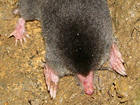 |
|
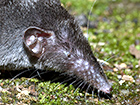 |
|
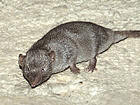 |
|
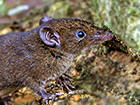 |
|
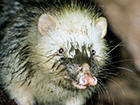 |
Insular Mole
Mogera insularis |
|
Shrews
Crocidura & other genera |
|
House Shrew
Suncus murinus |
|
Lesser gymnures
Hylomys spp. |
|
Moonrat
Echinosorex gymnura |
|
|
|
|
|
|
|
|
|
|
|
Pikas, Rabbits, Hares (Lagomorpha) |
|
|
|
|
|
|
|
|
|
|
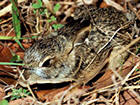 |
|
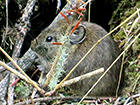 |
|
|
|
|
|
|
Burmese Hare
Lepus peguensis |
|
Moupin Pika
Ochotona thibetana
|
|
|
|
|
|
|
|
|
|
|
|
|
|
|
|
|
|
Colugos (Dermoptera)
Colugos, or 'flying lemurs', are from an ancient lineage of early mammals.
As of 2020, four species (in 2 genera) are recognised, with each occurring in
different parts of Southeast Asia. Colugos possess a thin membrane stretched
between each limb and the tail which helps them glide effortlessly between
trees,
sometimes more than 100 metres.
All species are folivorous (leaf-eating). Examples :
|
|
|
|
|
|
|
|
|
|
|
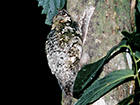 |
|
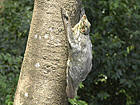 |
|
|
|
|
|
|
Bornean Colugo
Galeopterus borneanus |
|
Sunda or Malayan Colugo
Galeopterus variegatus |
|
|
|
|
|
|
|
|
|
|
|
|
|
|
|
|
|
Treeshrews (Scandentia) Treeshrews
superficially resemble rodents, and in the past have been considered as
insectivores, however they may be more closely related to primates and
colugos. As of
2020, around 23 species are recognised, in 4 genera; the genus Tupaia
comprises 19 species or so, with the greatest diversity on the island of
Borneo. Despite their name, most treeshrews are
terrestrial in habits. They have an elongated muzzle and sharply pointed
incisor teeth.
Examples :
|
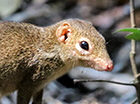 |
|
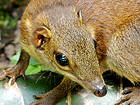 |
|
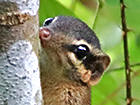 |
|
|
|
|
Northern Treeshrew
Tupaia belangeri
|
|
Common Treeshrew
Tupaia glis
|
|
Northern Smooth-tailed Treeshrew
Dendrogale murina
|
|
|
|
|
|
|
|
|
|
|
|
Porcupines (Rodentia, Hystricidae)
Porcupines have evolved sharp,
elongated quills for defence, which are actually modified hairs. In
Southeast Asia these are rarely seen, nocturnal mammals, however they may
be locally quite common in some forests. Globally 29 species are
recognised, of which 7 occur in Southeast Asia.
Examples :
|
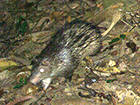 |
|
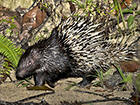 |
|
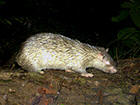 |
|
Other SE Asia species :
Hystrix crassispinis - Thick-spined (Bornean) Porcupine
Hystrix javanica - Sunda Porcupine
Hystrix pumila - Philippine Porcupine
Hystrix sumatrae - Sumatran Porcupine
|
Brush-tailed Porcupine
Atherurus macrourus |
|
Malayan Porcupine
Hystrix brachyura |
|
Long-tailed Porcupine
Trichys fasciculata |
|
|
|
|
|
|
|
|
|
|
|
|
|
|
|
Kha-nyou (Rodentia, Diatomyidae)
The Kha-nyou is a unique
species and the only living example of its kind. It occurs in a localised
area of Laos, in an area of karst limestone. Its skull structure is
markedly different to squirrels, murids (rats and mice) and other rodents,
and it is therefore assigned to its own family.
|
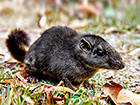 |
|
|
|
|
|
|
|
|
Kha-nyou
Laonastes aenigmamus |
|
|
|
|
|
|
|
|
|
|
|
|
|
|
|
|
|
|
|
Squirrels (Rodentia, Sciuridae)
Squirrels play a vital ecological role by consuming and dispersing
seeds, which make up part of the diet of most species. Within Southeast Asia there
are around 91 species of squirrel,
comprising 61 diurnal species, and 30 species of nocturnal flying squirrel.
Examples :
|
|
FLYING SQUIRRELS
SE Asia : 30 species (worldwide 44 species)
|
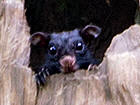 |
|
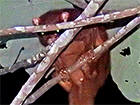 |
|
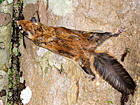 |
|
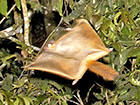 |
|
|
Large Black Flying Squirrel
Aeromys tephromelas
|
Thomas's Flying Squirrel
Aeromys thomasi
|
Red-cheeked Flying Squirrel
Hylopetes spadiceus
|
|
Horsfield's Flying Squirrel
Iomys horsfieldii
|
|
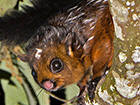 |
|
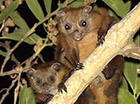 |
|
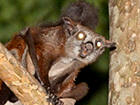 |
|
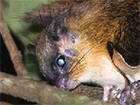 |
|
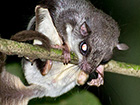 |
|
Spotted Giant Flying Squirrel Petaurista
elegans |
Red Giant Flying Squirrel
Petaurista petaurista
|
|
Indian Giant Flying Squirrel
Petaurista philippensis |
|
Whiskered Flying Squirrel
Petinomys genibarbis |
|
Temminck's Flying Squirrel
Petinomys setosus |
| |
|
|
|
|
|
|
|
|
GIANT SQUIRRELS
SE Asia : 2 species (worldwide 4 species)
|
|
STRIPED TREE SQUIRRELS
4 species, all occur in SE Asia
|
|
|
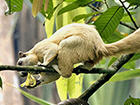 |
|
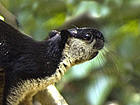 |
|
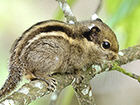 |
|
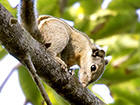 |
|
|
Cream-coloured Giant
Squirrel
Ratufa affinis
|
Black Giant Squirrel
Ratufa bicolor |
Himalayan Striped Squirrel
Tamiops macclellandi |
Cambodian Striped Squirrel
Tamiops rodolphii |
|
|
|
|
|
|
|
PYGMY SQUIRRELS
4 species, all in SE Asia
|
|
|
|
|
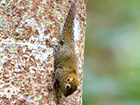 |
|
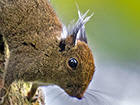 |
|
|
|
|
|
|
Bornean Pygmy Squirrel
Exilisciurus exilis |
Whitehead's Pygmy Squirrel
Exilisciurus whiteheadi |
|
|
|
|
|
|
|
|
|
CALLOSCIURUS TREE SQUIRRELS
14 species, all occur in SE Asia
|
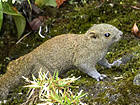 |
|
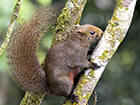 |
|
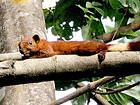 |
|
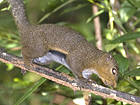 |
|
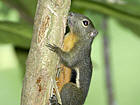 |
Grey-bellied Squirrel
Callosciurus caniceps
|
Pallas's Squirrel
Callosciurus erythraeus
|
Variable/Finlaysons Squirrel
Callosciurus finlaysonii
|
Black-banded Squirrel
Callosciurus nigrovittatus
|
Plantain Squirrel
Callosciurus notatus
|
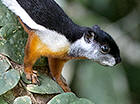 |
|
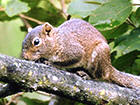 |
|
|
|
|
|
|
Prevost's Squirrel
Callosciurus prevostii |
Irrawaddy Squirrel
Callosciurus pygerythrus |
|
|
|
|
|
|
|
|
|
|
|
|
|
SUNDASCIURUS TREE SQUIRRELS
17 species, all occur in SE Asia
|
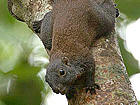 |
|
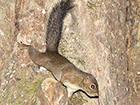 |
|
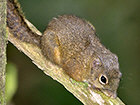 |
|
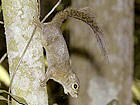 |
|
|
Horse-tailed Squirrel
Sundasciurus hippurus
|
Low's Squirrel
Sundasciurus lowii
|
Upland Squirrel
Sundasciurus tahan |
|
Slender Squirrel
Sundasciurus tenuis |
|
|
|
|
|
|
|
|
|
|
LONG-NOSED AND GROUND SQUIRRELS
Dremomys - 6 species, Lariscus - 4 species, Menetes - 1 species.
Rheithrosciurus - 1 species,
Rhinosciurus - 1 species.
All occur in SE Asia
|
SULAWESI DWARF SQUIRRELS
7 species, all in SE Asia
|
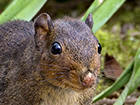 |
|
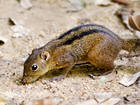 |
|
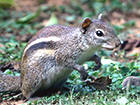 |
|
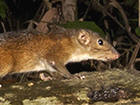 |
|
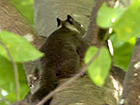 |
Red-cheeked Squirrel
Dremomys rufigenis |
Three-striped Ground Squirrel
Lariscus insignis |
Indochinese Ground Squirrel
Menetes berdmorei |
Shrew-faced Ground Squirrel
Rhinosciurus laticaudatus |
Sulawesi Dwarf Squirrels
Prosciurillus spp. |
|
|
|
|
|
|
|
Murids (Rodentia, Muridae)
Rats and mice are an important part of forest ecology. They are mainly
nocturnal and go largely unseen as they search the forest floor for fallen
fruits, and the occasional insect to supplement their diet. Within
Southeast Asia there are over 150 species of murid.
Examples :
|
|
|
|
|
|
|
|
|
|
|
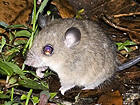 |
|
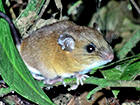 |
|
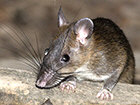 |
|
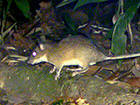 |
|
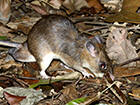 |
Pencil-tailed Tree Mouse
Chiropodomys gliroides
|
|
Ranee Mice
Haeromys spp.
|
|
Sundaic Mountain Rat
Leopoldamys ciliatus
|
|
Long-tailed Giant Rat
Leopoldamys sabanus
|
|
Rajah Spiny Rat
Maxomys rajah
|
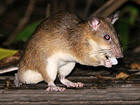 |
|
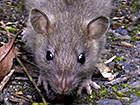 |
|
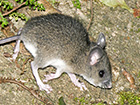 |
|
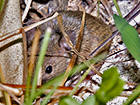 |
|
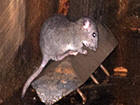 |
Red Spiny Rat
Maxomys surifer
|
|
House Mouse
Mus musculus (M. castaneus)
|
Indomalayan Niviventer
Niviventer fulvescens
|
|
Polynesian (or Pacific) Rat
Rattus exulans
|
|
Brown Rat
Rattus norvegicus
|
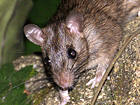 |
|
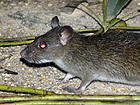 |
|
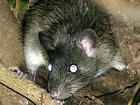 |
|
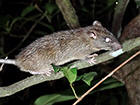 |
|
|
Asian House Rat
Rattus tanezumi
|
|
Malaysian Wood Rat
Rattus tiomanicus
|
|
Annandale's Rat
Sundamys annandalei
|
|
Müller's Rat
Sundamys muelleri
|
|
|
|